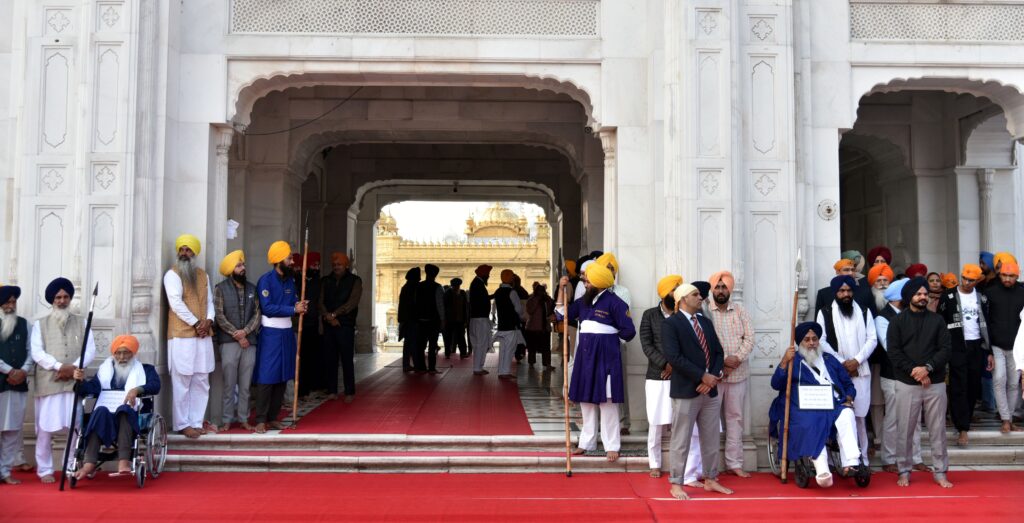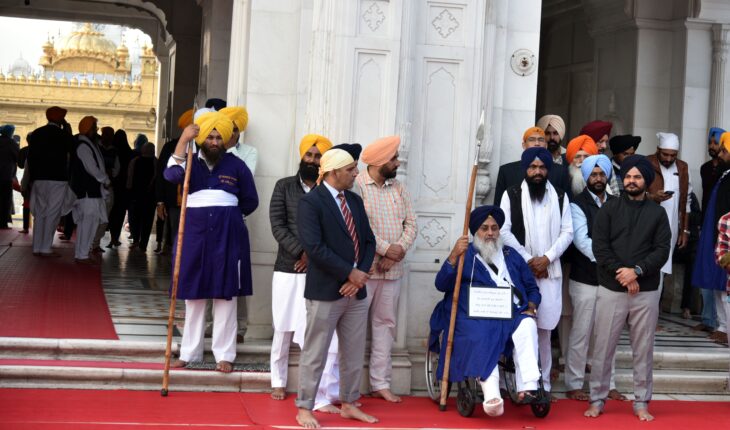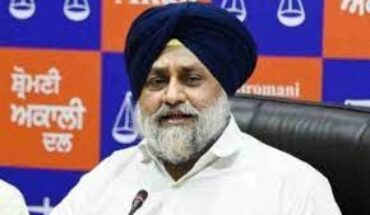Amritsar, December 3 – A day after the Sikh clergy pronounced the ‘Tankhah’ (religious punishment) to Sukhbir Singh Badal, the Shiromani Akali Dal leader on Tuesday along with others performed the duty of a ‘sewadar’ at the main entrance point of the Golden Temple.
Sukhbir was seen sitting on the wheel chair with fractured foot cladding the blue colored (shirt) uniform of Sewadar with plaque hanging around his neck acknowledging their misdeeds besides holding a spear in one hand and keeping his eyes down. It was a part of his punishment awarded by the Sikh clergy.

Sukhbir serve at Golden Temple on first day of punishment, in Amritsar.
Another senior Akali leader, octogenarian Sukhdev Singh Dhindsa accompanied Badal on another side of the entrance point of the Golden Temple. He was also seen sitting in a wheelchair due to ill health, performing the Sewa of Guard duty which was the part of religious punishment.
However, other Akali leaders Bikram Singh Majithia, Daljit Singh Cheema were seen cleaning the washrooms of devotees and utensils in the community Kitchen of the Golden Temple.
Sikh clergy had also directed Akali leaders Sucha Singh Langah, Hira Singh Gabria, acting president of the party Balwinder Singh Bhundar, Jagir Kaur, Prem Singh Chandumajra, Mahesh Inder Singh Grewal, Charanjit Singh Atwal and Sukhbir’s brother-in-law Adesh Pratap Singh Kairon and Gulzar Singh Ranike to clean washrooms at the Golden Temple from 12 noon to 1 pm on December 3, and then clean utensils at the community kitchen after taking a bath as a part of religious punishment.
Many visiting devotees were raising issues of high security around the Sukhbir Badal at the main entrance of the Golden Temple since they were allegedly creating inconvenience to visiting devotees to the holiest Sikh shrine.
However, pronouncing ‘Tankhah’ for Sukhbir Singh Badal and other leaders for the “mistakes” committed by the Shiromani Akali Dal government in Punjab from 2007 to 2017, the Sikh clergy at the Akal Takht on Monday directed the senior Akali leader to wash dishes and clean shoes at the Golden Temple in Amritsar as a ‘sewadar’.






